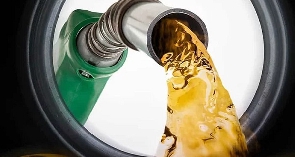The Executive Director of the Africa Centre for Energy Policy (ACEP), Benjamin Boakye, reiterated that falling fuel prices at the pump is the result of a general reduction on the global crude oil market and a stable cedi, and not the gold-for-oil barter policy.
He said domestic consumers, just like others in net importing countries, are experiencing fuel price reductions, hence, the government’s claim that the gold-for-oil policy has brought about the fall in pump prices is not accurate.
“If you are analysing the industry and how the pricing mechanics work, you will know that this has nothing to do with gold-for-oil. We are seeing prices on the international markets drop,” Mr. Boakye.
He explained that oil is currently selling at about US$73 per barrel and even US$$66 on the West Texas Immediate (WTI), with the market expecting prices to drop further in the coming weeks.
“These have implications for petroleum products on the market and that is what is forcing the price down, in addition to the fact that the cedi has been stable,” he said.
For local consumers of petroleum products, the said the cedi, which has appreciated by 4.2 percent against the dollar on the Bloomberg spot market since the beginning of the month, has had a profound impact on pump prices, contrary to comments by Vice President Dr. Mahamudu Bawumia that the gold-for-oil barter is the reason for the falling prices.
“If you understand the mechanics and what influences price, you’d have to analyse them based on those. It is not gold-for-oil that has caused the stability. This is the general attitude of the government because when they see prices go up, they will blame it on international pricing but when they see the prices drop, they want to attribute it to the gold-for-oil,” he emphasised.
With the domestic currency projected to remain stable, he said Ghanaians should expect to spend less on fuel in the near future.
From selling at an average of GH¢15.36 and GH¢13.8 per litre of diesel and petrol respectively in January this year, diesel and petrol are currently going for GH¢13.49 and GH¢12.95.
Meanwhile, Dr. Bawumia, in his speech at the inauguration of the new Bulk Oil Storage and Transportation (BOST) office complex in Accra, said that the gold-for-oil policy, which began early this year, will save the country some US$4.8billion annually.
He assured consumers of petroleum products that prices will decline further from the next pricing window beginning March 16, citing the barter policy.
“We will see the decline in price that we are expecting. This is remarkable because two and half months ago, we were at GH¢23 per litre but today, we are at GH¢12 per litre,” he said.
Gold-for-oil policy
The gold-for-oil policy, as explained by the government, is to allow the state to pay for imported oil products with gold, in a direct barter with gold purchased by the central bank.
According to the government’s G40 Programme Framework – dated February 3, 2023 – which explains the policy, payment for the oil supply is done in two channels; barter trade and via forex obtained from selling gold to a broker.
Under the barter channel, suppliers willing to take gold in direct exchange for petroleum products will be provided with the equivalent volume of gold by the Bank of Ghana (BoG).
On the other hand, under the broker channel, the BoG executes a gold supply agreement under which it sells gold to a gold broker, which provides forex cover to pay for petroleum products.
The policy, however, has been met with criticisms from energy sector civil society organisations and analysts for lacking transparency.
For instance, the Alliance of Civil Society Organisations (CSOs) working on extractives, anti-corruption and good governance, has described the policy as a smokescreen and a conduit for corruption, explaining that examples of barter arrangements all over the world show that they are typical recipes for short-changing citizens.
Watch the latest edition of BizTech and Biz Headlines below:
Watch the latest edition of Business Moments below:
Business News of Monday, 20 March 2023
Source: thebftonline.com













